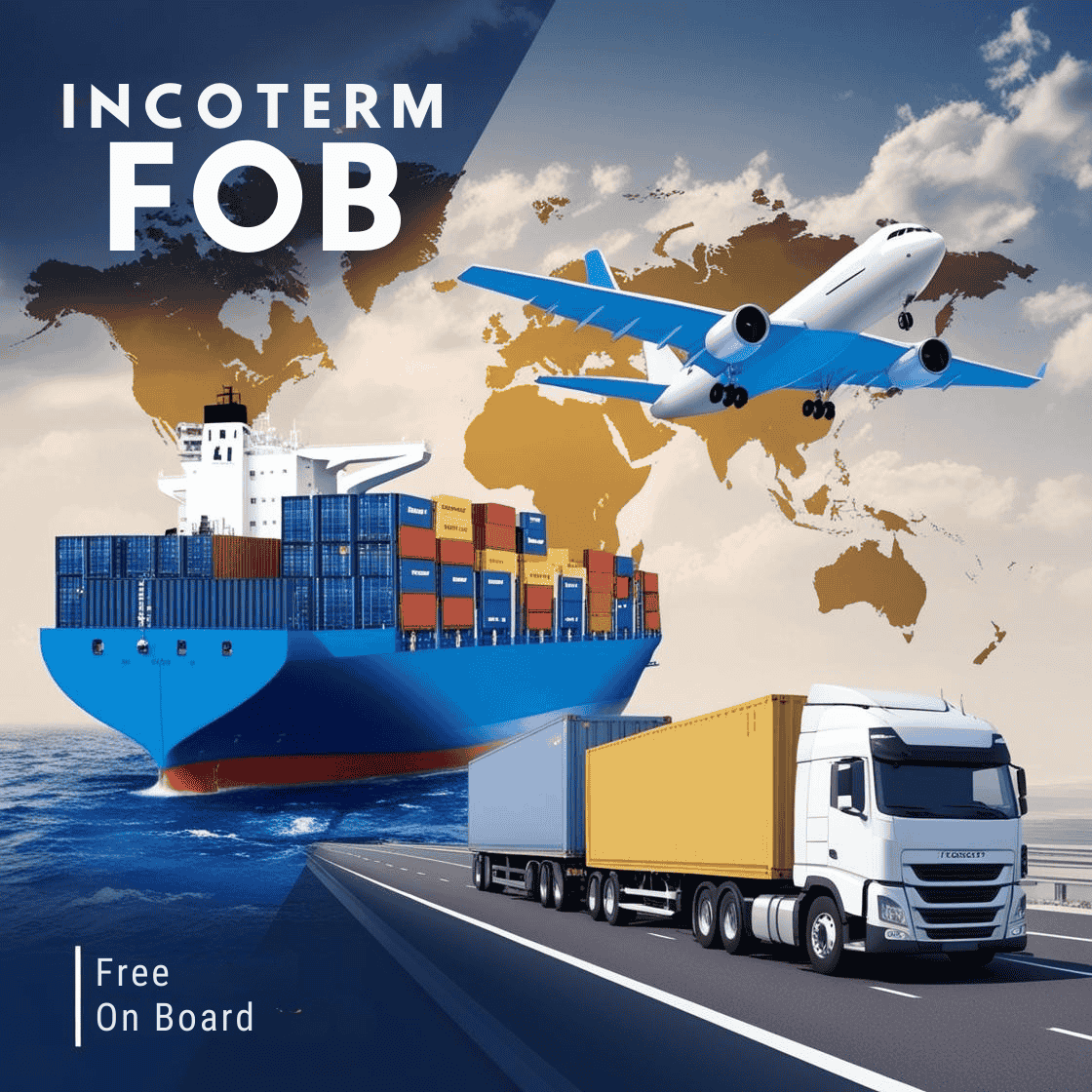International Chamber of Commerce (ICC) Official Term
FOB Incoterm: Definition & Responsibilities
Comprehensive guide to understanding Free On Board (FOB) Incoterm: roles, responsibilities, and the transfer of risk once goods are loaded on board at the designated port.
Based on Latest Incoterms® 2020 Rules
Updated for Trade Practices
Real Case Studies Included

Transport
Seller delivers goods to the port and loads them on board; buyer arranges the main carriage.
Insurance
Seller’s responsibility ends at loading; buyer secures insurance from that point onward.
Risk Transfer
Transfers once the goods pass the ship’s rail at the port of shipment.
